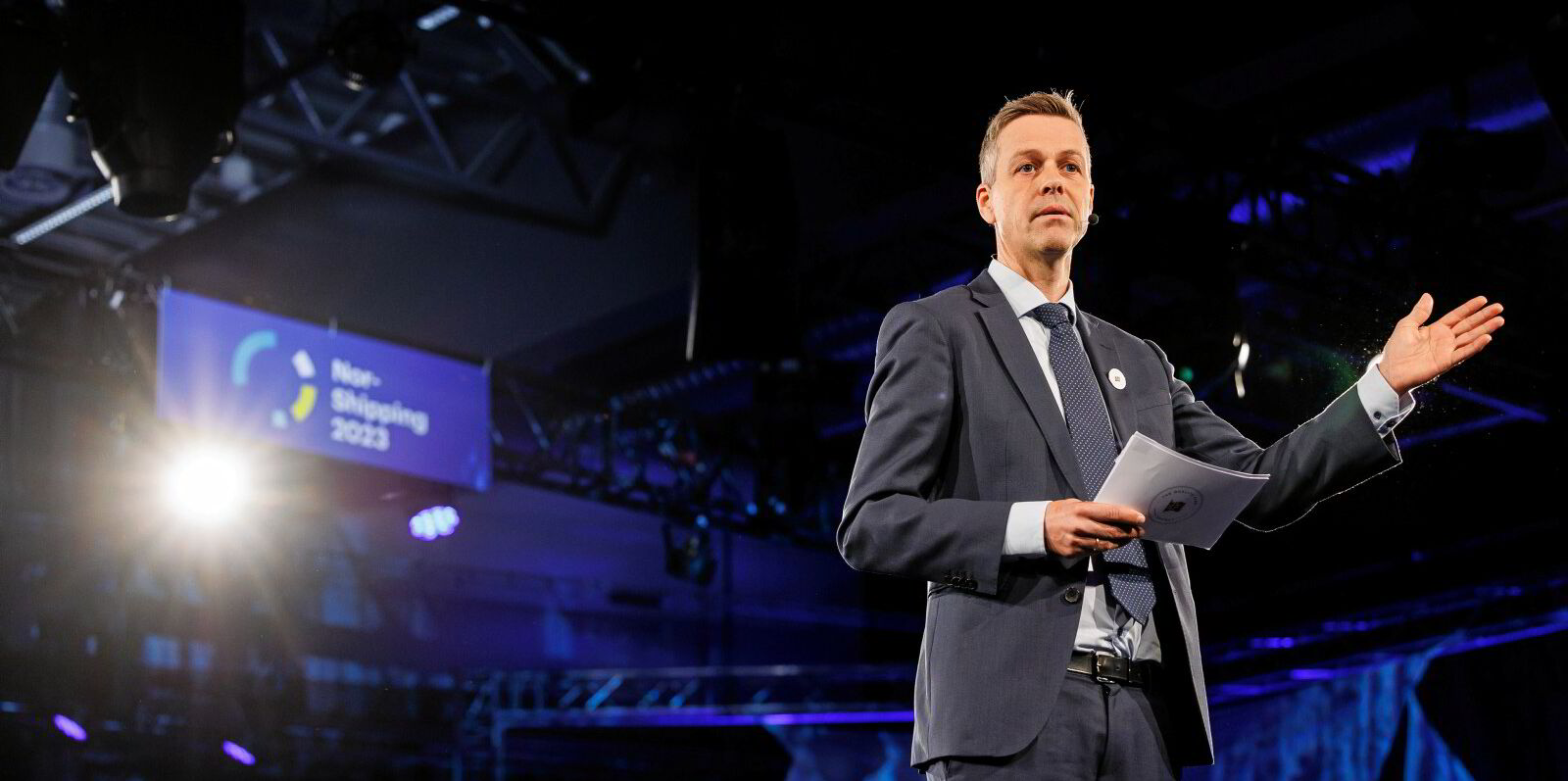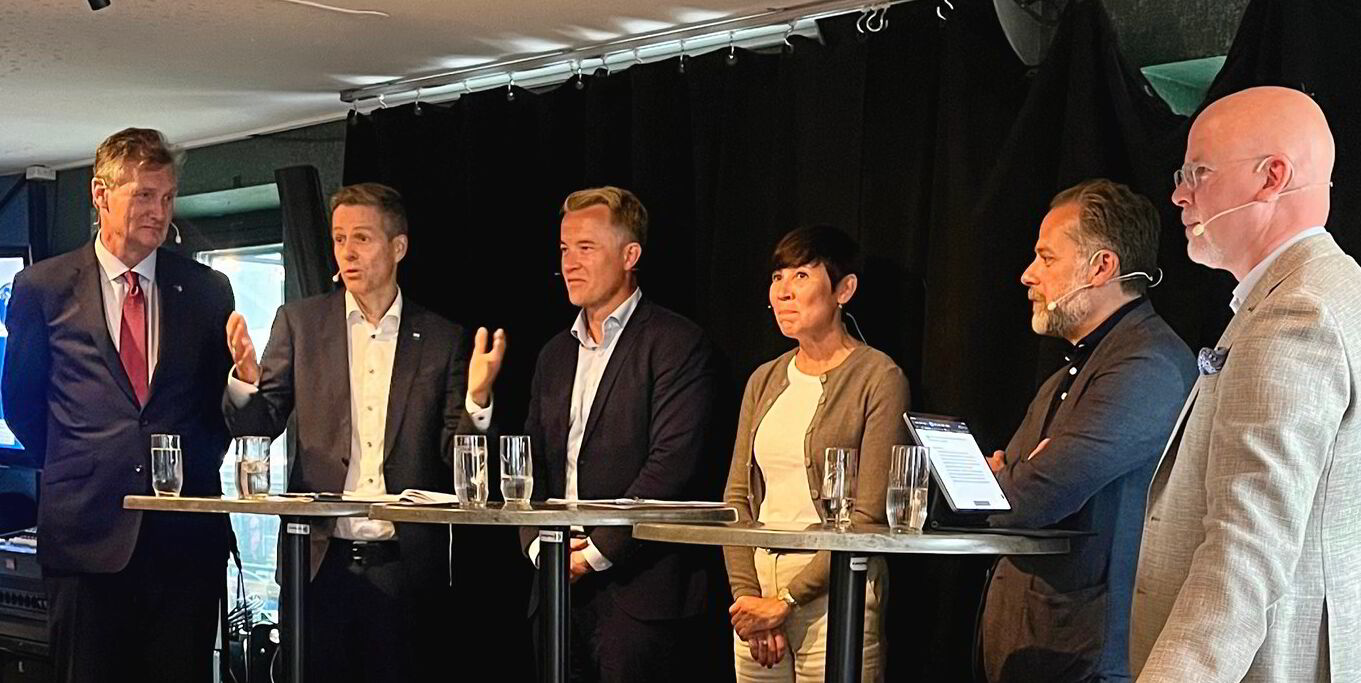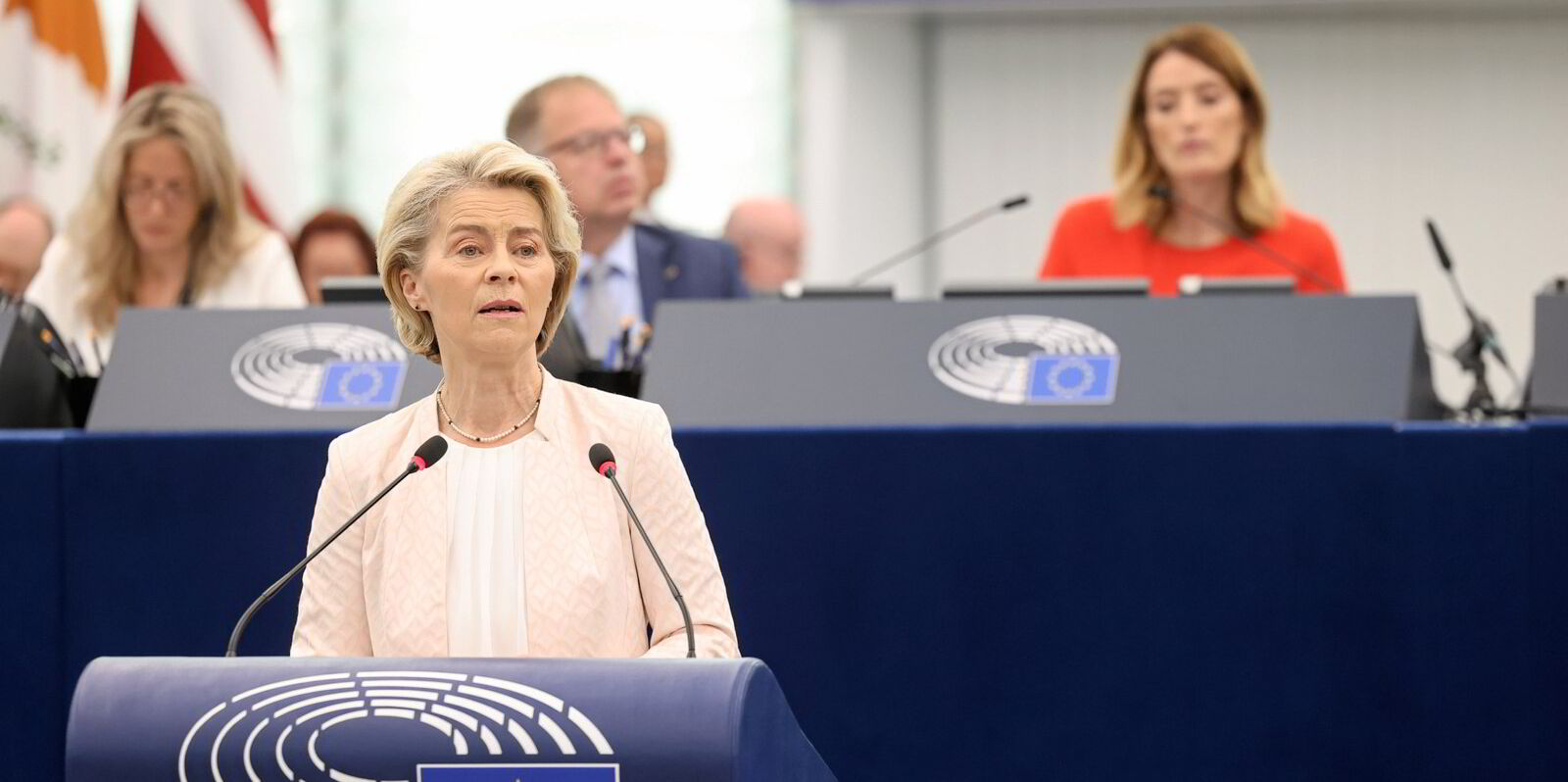Knut Arlid Hareide was been thrown in the deep end.
Just 10 days into the job, the new Norwegian Shipowners’ Association chief executive was dispatched to Arendalsuka — the weeklong political get-together that brings out nearly every political party, industry group and advocacy organisation.
His pitch: Better relations between shipping and government as the industry grapples with the green transition and geopolitical strife.
“I know we have a great cooperation, private-public cooperation, in Norway, between the maritime sector and the authorities. It’s quite unique,” Hareide said in an interview following one of the panels.
“My message is, it’s good today, but it’s not good enough for tomorrow.
“Norway must step up.”
At Arendalsuka, held each year on the tiny south coast own of Arendal, the Shipowners’s Association participated in 17 total events, with Hareide on stage for eight.
The next week, Hareide attended YoungShip’s ShipCon event alongside another association representative.
Speaking to TradeWinds, Hareide said the Norwegian maritime industry has carved out a place as one of the world’s most influential and innovative.
From the shipowners’ association pushing for net zero in its fleet by 2015 to the first methanol-run and LNG-powered ships, he said the domestic industry has more power than one would expect from a country of just under 5.5m people.
But he warned they ran the risk of that innovation hurting in the long run without government help.
“We need the same conditions that the EU has. We’re talking about the [Emissions Trading System (ETS)] money. That’s really important for us,” Hareide said.
“We are only saying that Norwegian politicians do the same as EU are doing.”
The European Union ETS kicked in on 1 January, with shipping forced to buy and use credits as a means to lower emissions. The EU intends the funds to go towards developing maritime decarbonisation technologies.
Hareide’s background in politics as leader of the Christian Democratic Party and director general at the Norwegian Maritime Authority gives him a window into government decision-making. He said it is possible on both the green front and maritime security front — where Norway has a role that could grow in the coming years.
“They understand that we have to step up, but it’s not so easy,” he said, noting many in Norwegian politics understand the situation and issues.
The new role also gives him the opportunity to speak his mind on issues he may have had to stay silent on in the past.
“I couldn’t challenge the politicians to say we need the same conditions as EU when I was director general of the Norwegian Maritime Authority,” he said.
“I have been a little bit concerned that we have a very strong position today, but then we need the same rules, the same conditions as our competitors.”





